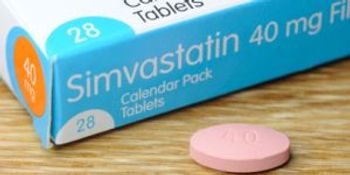
Children with favorable psychosocial experiences may have better cardiovascular health in adulthood.

Children with favorable psychosocial experiences may have better cardiovascular health in adulthood.

Roughly 50 million Americans take daily low-dose aspirin for cardioprevention, as it is generally perceived as a safe, effective, and inexpensive OTC preventive medication for cardiovascular disease. For patients who have nonvalvular atrial fibrillation, many guidelines recommend aspirin as thromboprophylaxis among those who are not considered to be high risk.

A collaborative, pharmacist-led intervention targeted at health care professionals improves statin prescribing and lowers the risk of atherosclerotic events in patients with cardiovascular disease.

With proper treatment, individuals with atrial fibrillation can live normal and active lives.

With proper treatment, individuals with atrial fibrillation can live normal and active lives.

Scientists from the Diabetes Research Centre at the University of Leicester have identified a link between low blood glucose levels and adverse cardiovascular events in patients with diabetes.

New research posits that cocaine use quadruples the risk of sudden cardiovascular death among individuals aged 19 to 49 years.

Many people experience a slight quivering or racing heart at some point and usually give it little notice. But for those diagnosed with atrial fibrillation, that irregular heartbeat can be a serious condition that can increase the risk of stroke and needs medical attention.

Various health organizations promote the importance of maintaining cardiovascular health because cardiovascular disease (CVD) is the leading cause of death among both men and women in the United States and the number of individuals with CVD continues to escalate annually.

New study results dispute the belief that diabetic patients with mild or non-obstructive coronary artery disease have a lower risk of major adverse cardiovascular events and death than their counterparts with obstructive disease.

CONMED Corporation is voluntarily recalling some of its PadPro and R2 multi-function defibrillation electrodes due to a connector compatibility problem with Philips FR3 and FRx defibrillator units.

Digoxin is associated with a 71% increased risk of death and a 63% higher risk of hospitalization among adults diagnosed with atrial fibrillation who have no evidence of heart failure.

Patients with chronic cardiovascular disease who receive automated reminders for their prescription blood pressure and cholesterol medications are more likely to refill those drugs.

A Genzyme and Isis Pharmaceuticals Inc. study suggests that mipomersen sodium injections reduce the odds of major adverse cardiovascular events in patients with familial hypercholesterolemia, compared with the 2 years prior to therapy.

A Merck study found patients who received a cholesterol-lowering combination of ezetimibe/simvastatin experienced fewer major cardiovascular events than those taking simvastatin alone.

Andexanet alfa showed promise as an anti-Xa reversal agent in new research presented at the American Heart Association's Scientific Session 2014.

Is moderation the key to all things, including exercise?

The FDA is taking a look at a trial that showed 30 months of dual antiplatelet blood-thinning therapy decreased the risk of heart attack and clot formation in stents, yet increased the overall risk of death compared with 12 months of the treatment.

The American Heart Association awarded its 2014 Population Research Prize to Vasan R. Ramachandran, M.D., of Boston University School of Medicine, "for brilliantly seizing upon opportunities to translate cutting-edge bench science into an epidemiological context, thereby making fundamental contributions to identifying systemic markers for cardiovascular risk, both here and in developing countries."

The FDA is taking a look at Amgen's Biologics License Application for evolocumab.

As new anticoagulants for atrial fibrillation enter the marketplace, health care professionals desire to understand how the drugs compare to the tried-and-true prototype, warfarin.

The FDA's Cardiovascular and Renal Drugs Advisory Committee has recommended the approval of edoxaban (Savaysa) for treating patients with nonvalvular atrial fibrillation, a type of arrhythmia that can potentially cause a stroke.

Even though smoking can exacerbate respiratory conditions and limit the efficacy of their treatment, patients often purchase cigarettes while filling prescriptions for asthma or antihypertensive drugs at pharmacies.

A new study indicates that high doses of fish oil supplementation fails to prevent the recurrence of atrial fibrillation.

Patients with moderate-to-severe psoriasis are more likely to have uncontrolled hypertension.